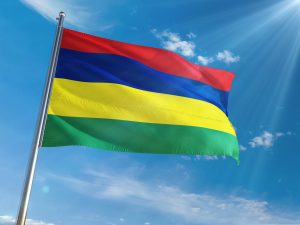The United States is committed to supporting a rules-based order in the Indo-Pacific. Upholding the rule of international law is a core U.S. interest, especially when it comes to governance of the “seas, skies, and other shared domains.” That, at least, is the central claim put forward in President Joe Biden’s new Indo-Pacific strategy document.
How, then, does the Pentagon justify its most important Indian Ocean base being located inside an illegal British colony?
The base in question is the military installation on Diego Garcia, the largest island of the Chagos Archipelago in the central Indian Ocean. The colony is the British Indian Ocean Territory, which is what the British government has called the Chagos Islands since detaching them from its Crown Colony of Mauritius in 1965.
In 2019, the International Court of Justice issued an advisory opinion that the colonial-era separation of Chagos from Mauritius was a violation of international law. The implication is that Mauritius should still be whole today, and that the British government has illegally occupied the Chagos Islands ever since Mauritian independence.
Last year, an international court constituted to decide a maritime boundary issue between Mauritius and the Maldives concurred, holding (in a decision binding upon Port Louis and Malé) that the entire Chagos Archipelago should be considered an integral part of Mauritius.
An overwhelming majority of the world’s governments agree with this growing body of international case law: that Mauritius is still suffering the indignity of colonization in the 21st century, and that Britain should withdraw from the Chagos Islands without delay.
It is high time that the United States join this overwhelming international consensus and support the decolonization of Chagos.
Officials in Washington will have noticed the raising of Mauritian flags this week on the “Outer” Chagos islands of Peros Banhos and Salomon, around 100 miles north of Naval Support Facility Diego Garcia. These banners – provocations meant to assert Mauritian sovereignty – were planted by members of a visiting group including international lawyers, Mauritian diplomats, journalists, and indigenous Chagos Islanders.
Why did the British government not intervene to stop this delegation, which telegraphed its arrival in advance, from asserting the Mauritian claim to the Chagos Islands? Why did London instead give assurances that it would allow the visiting party to conduct its business uninterrupted?
The answer is that Britain’s hands were tied. London would have been enormously embarrassed by any attempt to turn back or detain a vessel that counted the sitting Mauritian ambassador to the United Nations among its passengers. Even worse, London might have faced the prospect of having to defend the legality of its actions in domestic or international courts.
Those charged with implementing the United States’ Indo-Pacific strategy should not underestimate the seriousness of any of this. How many more unfettered Mauritian visits to Chagos will the British government tolerate in the name of avoiding unflattering news headlines? London cannot be considered an effective partner in governing the Chagos Islands if it does not have the effective authority to limit who visits the archipelago.
Of course, it should not come as any surprise that illegally occupying someone else’s sovereign territory comes with strings attached. As Biden’s own Indo-Pacific strategy states, “Our vital interests and those of our closest partners require a free and open Indo-Pacific, where governments can make their own sovereign choices, consistent with their obligations under international law; and where seas, skies, and other shared domains are lawfully governed.”
All of this is correct – including as it relates to the Chagos Islands. It truly is in the best interests of the United States to abide by international law, and to have its allies and partners do the same.
This is why the time has come for the United States to politely inform London that its services as landlord of the Chagos Islands are no longer required. Only by acknowledging Mauritian sovereignty over the Chagos group, including Diego Garcia, can the United States ensure that its military base is placed on a sustainable – and legal – footing.
Nobody disputes that the military base on Diego Garcia is an important strategic asset, especially in the context of so-called “great power competition” with China. But there is a future for Naval Support Facility Diego Garcia in a world without continued British colonialism.
Indeed, the government of Mauritius has offered the United States a 99-year lease to govern its future access to Diego Garcia. Biden should instruct his advisers to take “yes” for an answer.
Supporting the decolonization of the Chagos Islands is the only policy compatible with the United States’ strong interest in a rules-based order for the Indo-Pacific. Such a move would allow the United States to uphold international law, cement an important relationship with a democratic Indian Ocean state, and maintain the operability of a critical military base.
It would also permit officials in London to breathe a sigh of relief at no longer having to defend the indefensible – no small favor to a long-suffering friend.
































